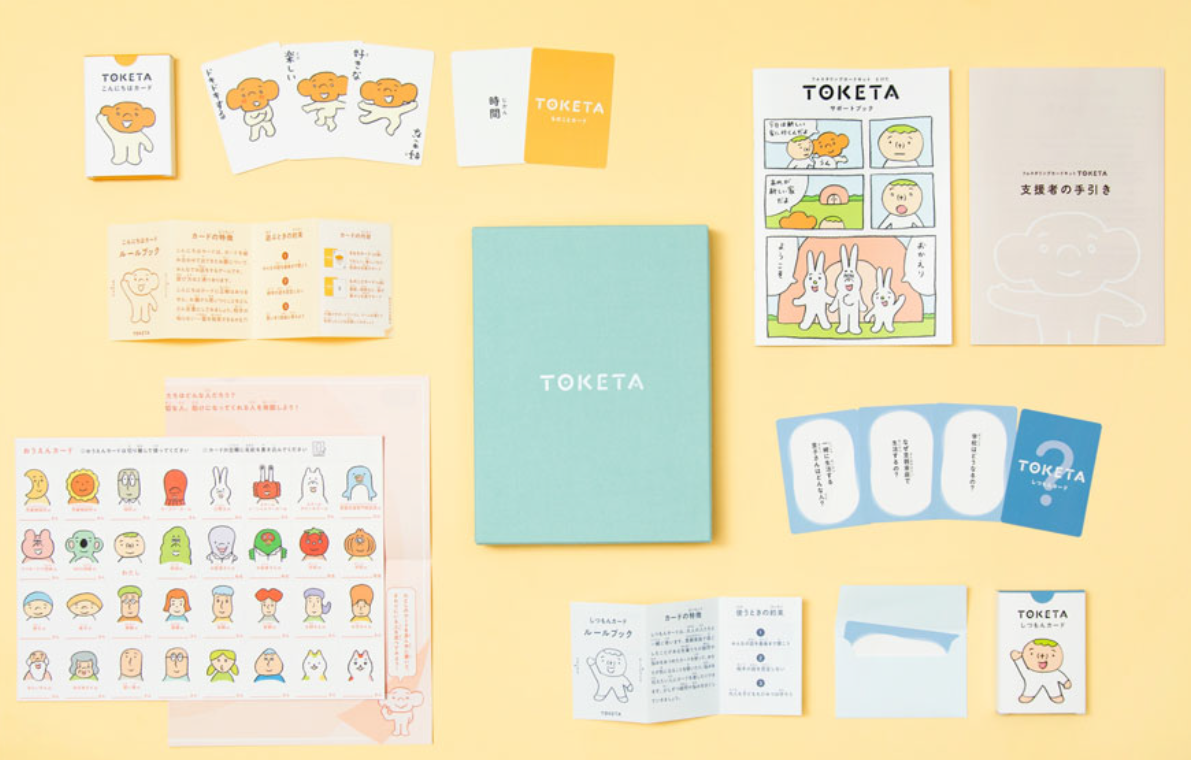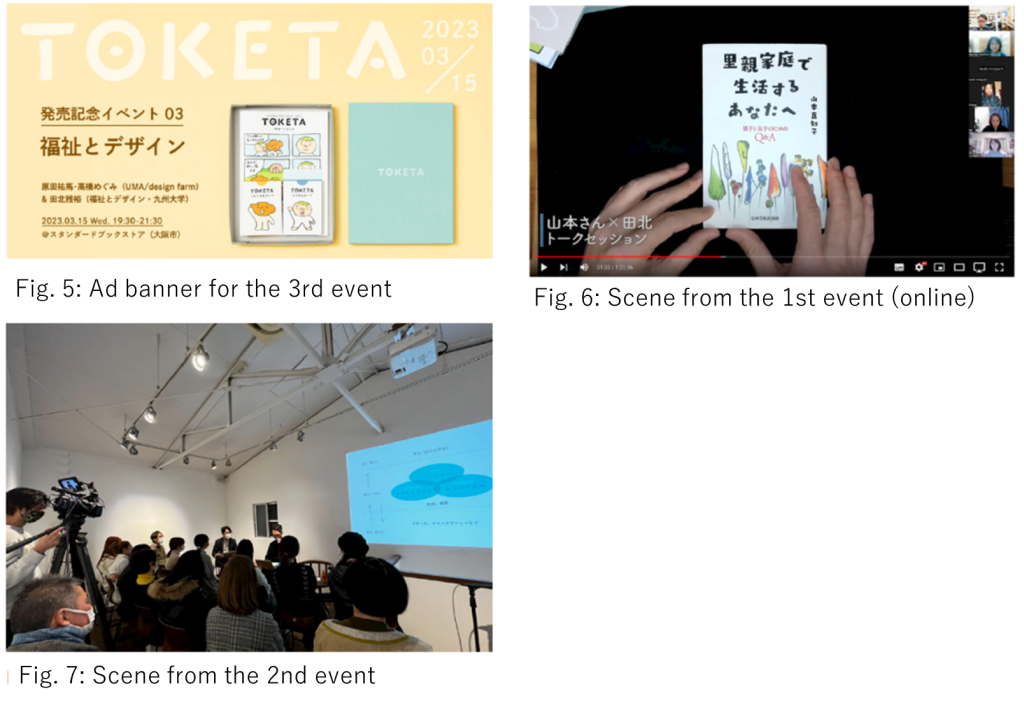ActivitySocial Implementation Project for the TOKETA Fostering Card Kit2023.3.16

Research Director:
Lecturer Masahiro Takita, Faculty of Design
Keywords:
Communication design, foster care, child rights
During the last academic year (2021), we planned and produced the TOKETA fostering card kit in cooperation with the Nippon Foundation, the Public Private Council for the Promotion of home care for children, and the UMA/design farm design office in Osaka. TOKETA is a card kit designed to help foster children, the biological children of the parents who foster children, and children who will live in foster families in the future to understand foster family arrangements and alleviate their concerns (Fig. 1). While the number of available pamphlets geared towards adults which spread and promote an understanding of foster parenting has increased in recent years, no media existed in Japan aimed at the most important stakeholders, the children. To address this, we produced this kit after receiving a design request from the Nippon Foundation. During the current academic year, we decided to brush up the kit produced the previous year and commence the sale of the kit starting in September, with the Welfare & Design association serving as the publisher, with the aim for the kit to be implemented wider in society. This particular project involves carrying out the necessary research and design practices necessary to do so.
First, four students from the Graduate School of Human-Environment Studies, Graduate School of Integrated Frontier Sciences, and School of Education produced an introductory video explaining the details of the TOKETA kit in an easy-to-understand manner. The composition, narration, and timing of the video was planned to convey the appeals of TOKETA in a straightforward manner, and the video was produced in collaboration with video production company Runhunsha Inc. (Fig. 2) Next, we carried out a survey and interviews of purchasers to identify a user-oriented design policy for future kits and the promotion thereof. While the number of respondents was limited due to the recent commencement of sales, we were able to identify issues including the time required to understand how to use the kit, the need for supporters to master the use of the kit, and issues in presentation enabling cards to be easily identified, and this provided insights regarding the design policy.
In light of the survey outcome, we decided to host events with the students in order to spread an understanding of the purpose of TOKETA and how to use it. Specifically, a series of three events was planned (Figs. 3 – 5), two of which have been carried out as of March 3. The first event was hosted online on January 24 featuring Associate Professor Machiko Yamamoto of Otsuma Women’s University, who has experience living in a foster family as the parents’ biological daughter, giving a talk entitled “What is TOKETA? Learn About Foster Families through TOKETA.” A diverse collection of participants totaling 38 people attended and shared an understanding that TOKETA was geared towards not only foster children, but the biological children living with them as well (Fig. 6). This event covered a great deal of important information regarding understanding TOKETA, so we plan to edit the video recording of the session and release it as a video archive. The second session featured guest designer Takuma Nakagawa giving a talk entitled, “Children’s Advocacy and Design.” Last year, Nakagawa was involved in the design of the Children’s Rights Notebook for children in social care in Fukuoka City. He shared integral points of emphasis in design for children and deepened the participants’ understanding of the concept of children’s advocacy, which has taken on a more important position within policy since the revision of the Child Welfare Act. A total of 78 people participated from such backgrounds as childcare workers, teachers, designers, employees of welfare facilities, advocates, foster parents, persons who received social care in the past, academics, and students, and the event offered them an opportunity to deepen their understanding of cross-discipline design (Fig. 7). The third event will feature Yuma Harada and Megumi Takahashi of UMA/design farm, who were involved in the planning and production of TOKETA, to give a talk on a theme of welfare and design on March 15. The purpose of these three events has been to share TOKETA and the meaning behind its design with people from numerous backgrounds. We intend to leverage this experience to continue to implement TOKETA, and support systems for children using TOKETA, in society.


This research received a small grant in FY2022 from the Center for Designed Futures of Kyushu University.
